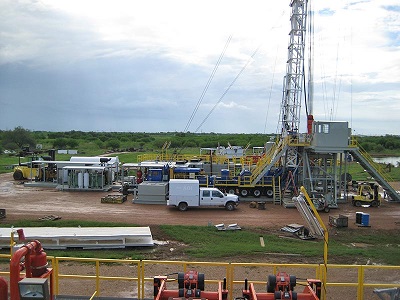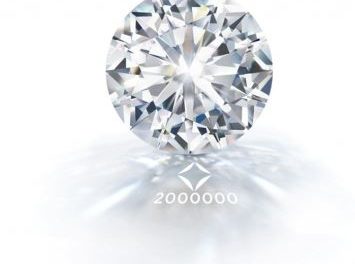
A Canadian oil exploration company fights for trust in Namibia

By Freeman Petrus ya Ngulu.
The straightforward path for ReconAfrica, a junior Canadian oil and gas company, was to descend upon Namibia’s ecologically delicate Kavango East region in 2015.
Announcing the results of the third well in November, ReconAfrica said it has found no commercial oil but still insisted the data confirmed the presence of a working petroleum system.
After all, the company had a 2015 valuation of R141 million.
ReconAfrica’s valuation, however, increased to R25 billion in 2021 when it started its exploring efforts after obtaining a Namibian oil and gas licence, according to official government data.
The significant share price increase occurred after ReconAfrica announced the results of the first test well in April 2021, claiming to have discovered a “working conventional petroleum system,” or a body of crude oil.
90% of the Namibian oil exploration project is controlled by ReconAfrica, and 10% shareholding belongs to the state-owned National Petroleum Corporation of Namibia (Namcor).
However, as more results were released, the company’s stock began to fall. The significant drop in share price occurred after Viceroy Research released its report on 24 June, 2021, a month after ReconAfrica drilled its second well. This report was damning, stating that “[ReconAfrica’s] mining assets are not highly valued.”
The licence area is upstream of the Okavango Delta, a distinctive and ecologically delicate watercourse, forming part of the Kavango-Zambezi Transfrontier Conservation Area.
Initial company statements suggested that the search for “unconventional resources,” which generally include shale and other rock formations that require hydraulic fracturing (“fracking”) to extract oil and gas deposits, was a key part of ReconAfrica’s proposal.
Fracking is the process of injecting high-pressure fluids into a well to crack open deep underground rock formations, allowing previously trapped oil and gas to flow to the surface. Consequently, fracking is linked to serious environmental and health risks, including water contamination.
Last year, ReconAfrica’s stock plummeted after National Geographic and short-seller Viceroy Research separately published detailed articles questioning the lack of public consultation and whether ReconAfrica was exaggerating the project’s viability.
ReconAfrica has already spent an astounding R445 million, which was raised on open market. ReconAfrica spent another R133 million on donations, which have been dubbed a “PR contribution” by critics.
Nonetheless, despite such extravagant spending, the results have been disappointing: the three wells drilled at great expense have not yielded evidence of a commercially viable oil or gas field. With mounting debts and C$77 million in cash from investors, ReconAfrica management must instead demonstrate to investors, the government, and environmentalists that it is not selling a dirty dummy.
Investor Revolt:
The central claim in the current New York class action suit is that investors were knowingly misled about the company’s Namibian prospects in order to increase the price. Investors claim that ReconAfrica made false statements that led them to purchase shares between February 2019 and September 2021, shares that have since plummeted in value.
The company denied the allegations and asked the court last month to dismiss the case, claiming that the charges are all speculative and do not meet the legal standard.
The investors are divided: “This is a straightforward case of securities fraud. Defendants withheld material information from the public about their first two oil and gas test wells, as well as their plans to frack in Namibia, while selling millions of dollars of ReconAfrica stock to unwitting investors,”in papers filed last month, lawyers for the disgruntled investors wrote.
Following this announcement, ReconAfrica’s shares fell 39% to $1.41 (R24) per share on 09 November.
The Namibian government had already begun cashing out of the project by this point in February when the share price was still around $5 (R87), Namcor, ReconAfrica’s Namibian partner, agreed to sell half of its 10% stake back to the Canadian company.
Geologist Matt Totten Jr, who has been following ReconAfrica’s transactions, believes Namcor wants to maximize the amount they can get from the project before ReconAfrica’s share price drops again.
“ReconAfrica will acquire 5% of Namcor’s current 10% stake in exchange for R30 million in cash. The remaining funds will come from consideration shares worth R379 million. Taking into account Namcor will give up its 5% stake in the Kavango project in exchange for a 5% stake in future projects owned by ReconAfrica.”
“After evaluating geological tests, Namcor’s decision to sell its stake is a vote of no confidence in the ReconAfrica (Kavango) project,” Totten Jr. said.
Namcor spokesperson Utaara Hoveka expressed satisfaction with the agreement, which provides them with direct equity in ReconAfrica, allowing them to benefit from the company’s operations both in Namibia and internationally.
ReconAfrica stated in 2021 that it would commit C$10 million (R128 million) to ESG projects through its environmental, social, and governance (ESG) program.
The company also claimed that 26 water wells were drilled at a cost of R13 million.











































